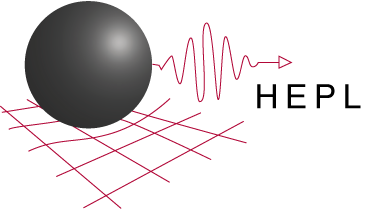News & Events
HEPL-AEROASTRO Seminar
Wednesday, November 10, 2010
Robert Braun
NASA Chief Technologist
Investments in our Future: Exploring Space
through Innovation and Technology
Abstract: NASA Chief Technologist Dr. Robert Braun will provide an overview of NASA's planned research, innovation and technology investments that focus on opening up the solar system for robotic and human exploration, while providing broadly-applicable benefits right here on Earth. Dr. Braun will highlight NASA's push for disruptive technologies that may enable humans to explore deep space, including near-Earth asteroids and eventually Mars. This technology-enabled exploration strategy will allow NASA to send humans beyond low Earth orbit more efficiently, safely, and expeditiously. Central to this approach, NASA's new Space Technology Program seeks to create the technological knowledge and capability needed to enable a new generation of NASA aeronautics, science, and exploration missions. By taking informed risks and focusing on high-payoff technologies, Dr. Braun believes the Space Technology Program will provide the answers to the Agency's future technological needs. Developing these new transformational technologies and capabilities will require the best of academia, industry, and our government labs. In this seminar, Dr. Braun will also highlight how NASA space technology solutions impact societal challenges in energy, environment, and national security, and will discuss the importance of science, technology, engineering, and mathematics to our Nation's future.
Bio: Dr. Robert D. Braun was appointed NASA Chief Technologist in February 2010. He also serves as the David and Andrew Lewis Professor of Space Technology in the Daniel Guggenheim School of Aerospace Engineering at the Georgia Institute of Technology. At Georgia Tech, he leads an active research program focused on the design of advanced flight systems and technologies for planetary exploration and is responsible for undergraduate and graduate instruction in the areas of space systems design, astrodynamics, and planetary entry. Prior to joining Georgia Tech, Dr. Braun worked at NASA for sixteen years where he contributed to the design, development, test, and operation of several robotic spaceflight systems, including entry, descent, and landing systems for the Mars Pathfinder, Mars Microprobe, and Mars Sample Return missions. He is an AIAA Fellow and the primary author or co-author of over 175 technical publications in the fields of planetary exploration, atmospheric entry, multidisciplinary design optimization, and space systems engineering.
Time: 4:00pm – 5:30pm
Location: Center for Integrated Systems Building, Conference Room 101X
Light refreshments available 4:00pm; Presentation begiins 4:15pm.
Open to All


